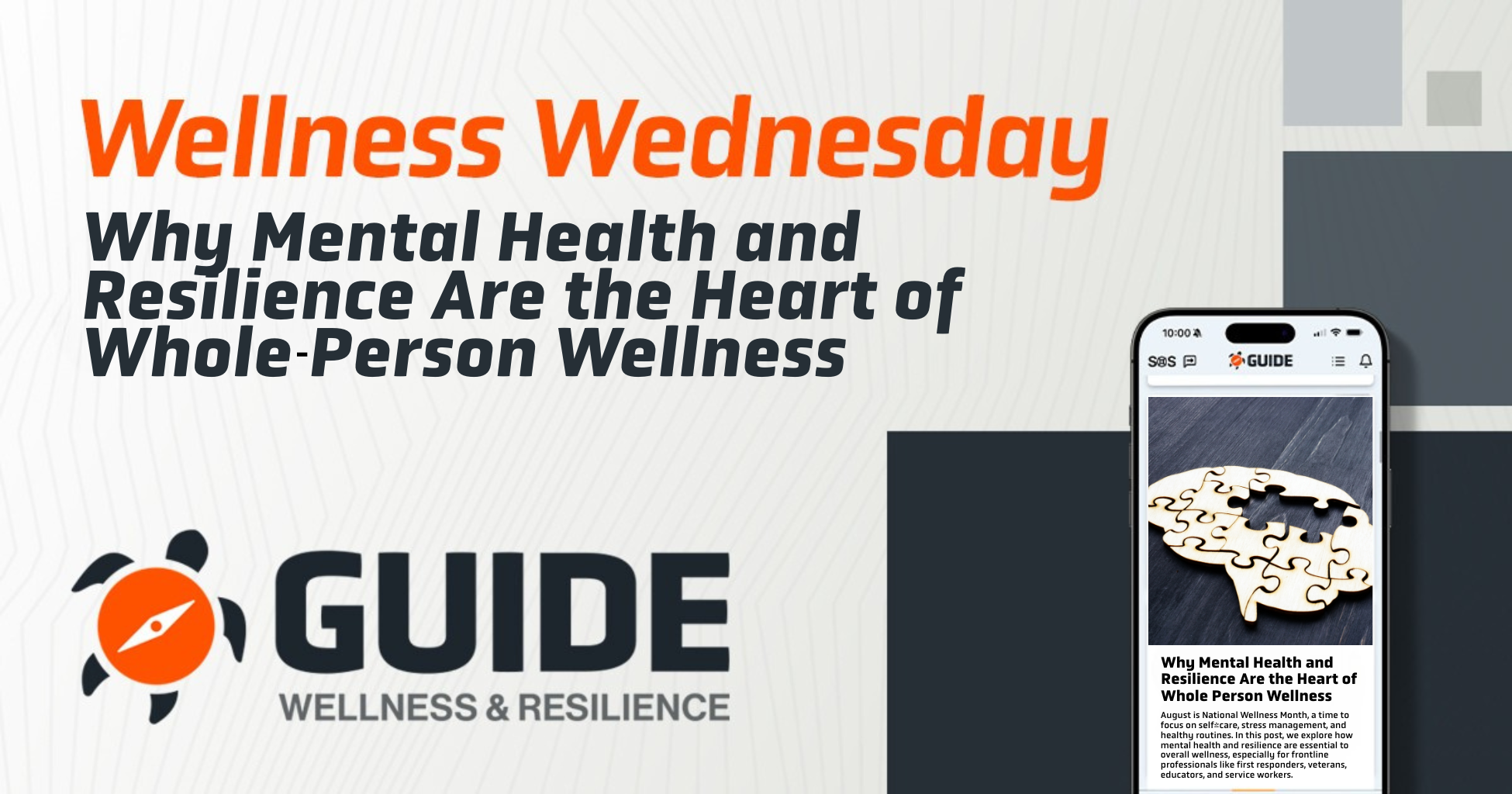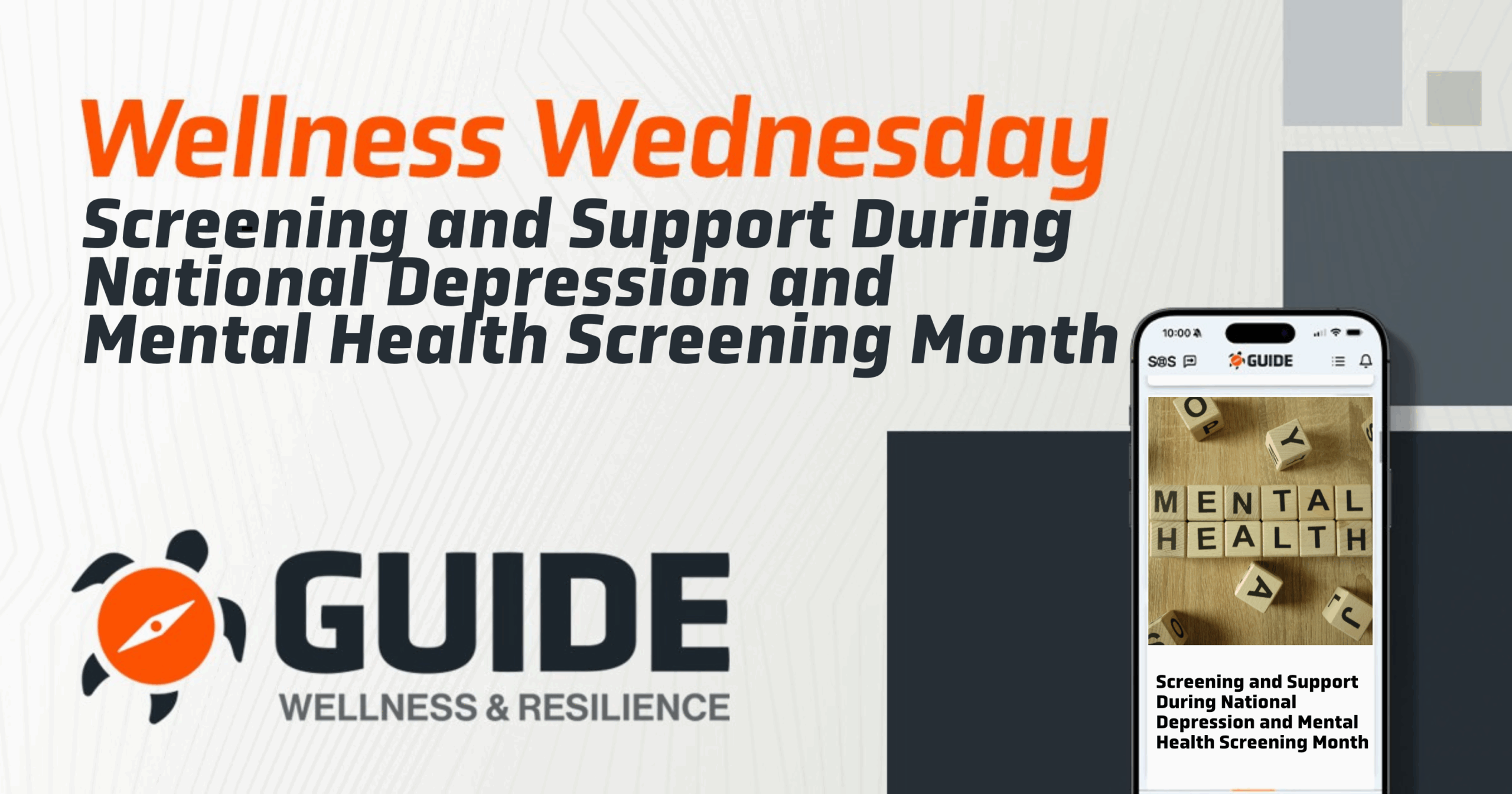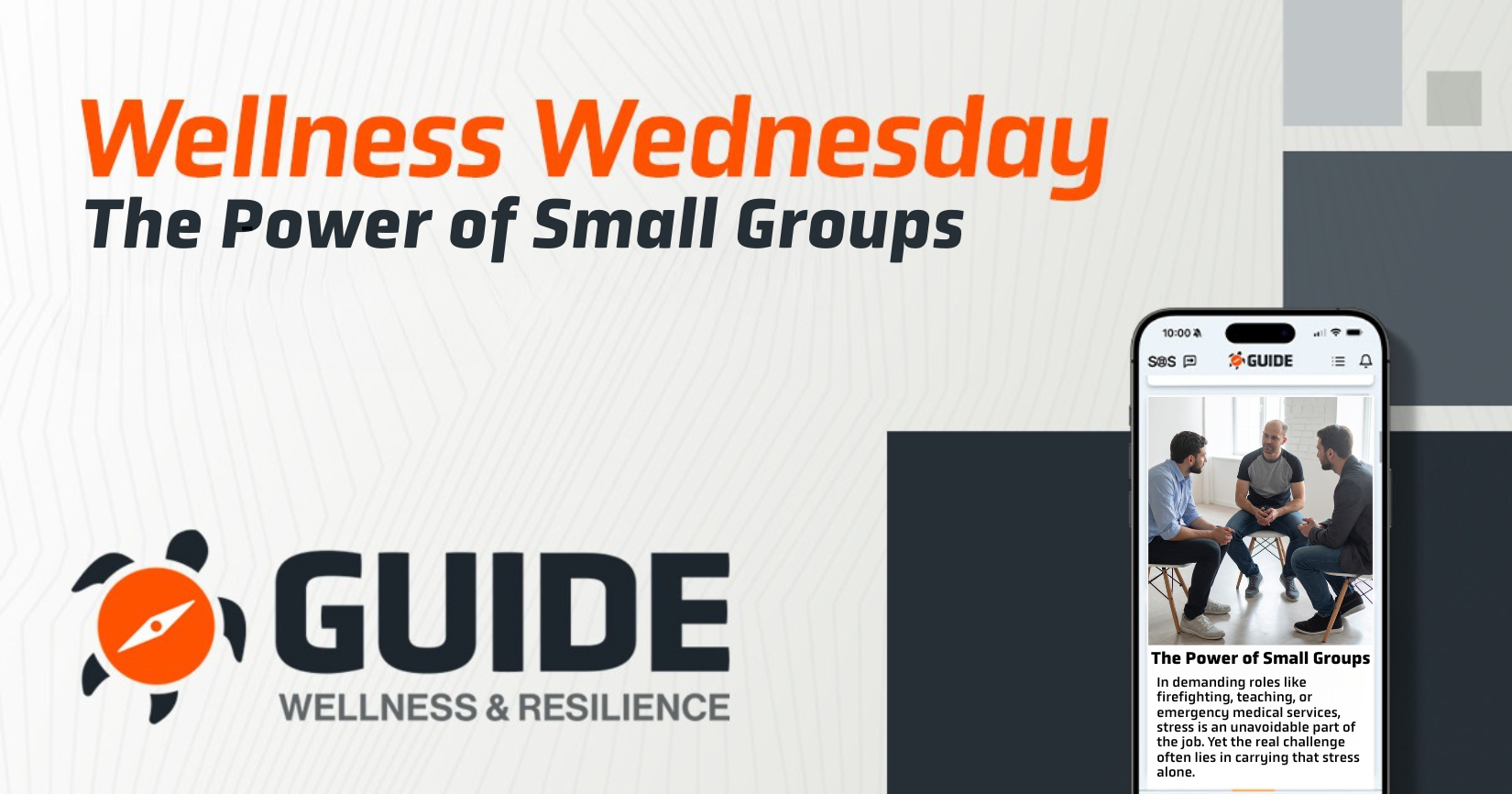August is National Wellness Month
Each August, we’re invited to pause and reflect during National Wellness Month, a nationwide reminder to prioritize well-being and embrace sustainable habits that support a healthier life. While wellness often evokes thoughts of nutrition, exercise, or sleep (and rightfully so), it’s impossible to talk about true wellness without talking about mental health.
Whole-person wellness isn’t complete without mental resilience.
Whether you’re a veteran adjusting to life after service, a teacher navigating daily pressures in the classroom, or a healthcare worker running on empty, your mental well-being isn’t optional. It’s the foundation that everything else rests on.
This month, we’re breaking down what wellness really means, and why strengthening your mental health might be the most important move you make all year.
What Is “Wellness,” Really?
At its core, wellness is a multidimensional pursuit of health. It’s not just about what you eat or how often you move; it’s about how you function emotionally, socially, spiritually, and mentally in your everyday life.
The National Institutes of Health (NIH) defines wellness as “an active process of becoming aware of and making choices toward a healthy and fulfilling life.”
This includes:
- Physical wellness – sleep, movement, nutrition
- Emotional wellness – managing stress, expressing feelings
- Social wellness – building strong, healthy relationships
- Occupational wellness – satisfaction and balance in your work life
- Spiritual wellness – a sense of purpose and values
- Intellectual wellness – lifelong learning and mental stimulation
- Environmental wellness – your surroundings and their impact
And underpinning all of these? Mental health.
When your brain is fried, your fuse is short, and your nervous system is stuck in fight-or-flight, everything else suffers, no matter how much you’re exercising or how well you’re eating.
Why Mental Health is the Keystone of Well-Being
Mental health isn’t just about avoiding burnout or managing anxiety, though both are important. It’s about maintaining the capacity to live well, show up for others, and navigate life’s highs and lows with stability and strength.
Your brain is your operating system. When it’s overloaded, undernourished, or unsupported, your wellness suffers across the board. Here’s how poor mental health can ripple outward:
- Physical symptoms like headaches, fatigue, digestive issues, and weakened immunity
- Poor sleep that undermines energy, mood, and recovery
- Strained relationships at home or work due to irritability, detachment, or reactivity
- Decreased performance on the job, particularly in high-stakes environments
- Risky coping behaviors like substance misuse or isolation
The solution isn’t to just “tough it out”, especially if you’re in a role that demands emotional stamina and decision-making under pressure.
The solution is to actively support your mental health, with tools, practices, and connection.
Stress is Normal, Staying in Survival Mode Isn’t
For frontline professionals, stress comes with the territory. If you’re working long shifts, managing high caseloads, or exposed to trauma regularly, you’re not weak for feeling the effects. You’re human.
But staying in a constant state of survival, hypervigilant, disconnected, and exhausted, doesn’t build resilience. It breaks you down over time.
This is especially true for:
- Veterans, who may still be coping with unresolved trauma, hypervigilance, or identity shifts after service
- First responders, who experience a high volume of crisis and emotional labor with limited time to process
- Educators, who manage overflowing classrooms, systemic pressures, and increasingly complex student needs
- Service workers, often underpaid and overlooked, yet holding the emotional load of customer-facing work
For each of these groups, the expectations are high and the recovery time is short.
That’s why wellness must be proactive, not reactive. It’s about making space before you burn out. Not just reaching for help when things fall apart, but using daily tools to stay steady, regulated, and connected to yourself.
So… What Does Resilience Really Mean?
We talk about resilience a lot, but it’s often misunderstood.
Resilience is not about being unaffected by stress or “toughing it out.” It’s the ability to:
- Bounce back after adversity
- Adapt to change and uncertainty
- Regulate emotions during stress
- Stay grounded during crisis
It’s a skill set that can be trained, just like physical strength.
And it doesn’t have to be complicated. Small, daily habits can build mental and emotional resilience over time, if you know where to start.
Practical Ways to Build Mental Resilience This Month
Here are a few accessible ways to begin boosting your resilience this August:
1. Track Your Mood
Awareness is the first step. Mood tracking helps you spot patterns, identify stress triggers, and course-correct early. You might notice that you’re always depleted on Wednesdays—or anxious after certain tasks. That’s valuable data.
2. Ground Your Nervous System Daily
Try these techniques:
- Deep breathing (inhale 4, hold 4, exhale 4)
- Cold water on your face or hands
- Grounding exercises like “5-4-3-2-1” sensory scans
- A walk outside without your phone
Even 90 seconds of nervous system regulation can shift your entire day.
3. Set Micro-Boundaries
You don’t need to overhaul your life, start with something small:
- Say no to one extra task
- Take your lunch break away from your desk
- Turn your phone on “Do Not Disturb” for 20 minutes
Tiny changes help rebuild agency and reduce chronic overwhelm.
4. Check In With Others
Peer connection is powerful. Especially when you can be honest. Whether it’s a colleague, mentor, or an anonymous support group, opening up helps remind you: you’re not in this alone.
5. Celebrate Progress, Not Perfection
Wellness isn’t a linear path. Some days will feel like setbacks—but resilience is built in the rebound. Progress looks like:
- Noticing your stress earlier than before
- Asking for help instead of bottling it
- Journaling instead of spiraling
Give yourself credit.
Why Wellness Isn’t Just Personal, It’s Professional
If you work in a high-stakes, high-stress profession, your mental wellness isn’t just about self-care, it’s about performance, safety, and longevity.
Studies show that improved mental resilience leads to:
- Fewer sick days
- Lower burnout rates
- Better decision-making
- Higher job satisfaction
- More sustainable careers
For leadership, investing in mental health isn’t just compassionate, it’s strategic.
And for those doing the work every day, building mental strength isn’t a luxury, it’s a lifeline.
How GUIDE Helps You Build Resilience, One Day at a Time
At GUIDE, we believe wellness should be accessible, practical, and anonymous, especially for the people doing the world’s toughest jobs.
We’re proud to support veterans, first responders, educators, and front linesService workers with a mobile-first platform designed to meet you exactly where you are.
Here’s how The GUIDE App helps:
Daily micro-learning content to build resilience in under 5 minutes
Mood tracking that helps you spot patterns before they spiral
Anonymous peer support from others who get it
SOS features for real-time support in moments of crisis
Badges, streaks, and feedback to motivate small, daily progress
Whether you’re burned out or just ready to stay ahead of stress, The GUIDE App is your space to reset, privately, safely, and on your own terms.
This August, Let’s Redefine Wellness Together
You don’t need to be perfect. You just need to be present.
This National Wellness Month, commit to one thing that supports your mental health, and give yourself permission to rest, reflect, and rebuild.
Because wellness isn’t a luxury. It’s a right.
And resilience isn’t out of reach. It’s already in you, GUIDE just helps you unlock it.
Ready to take the next step?
Visit www.theguideapp.com to learn more.




